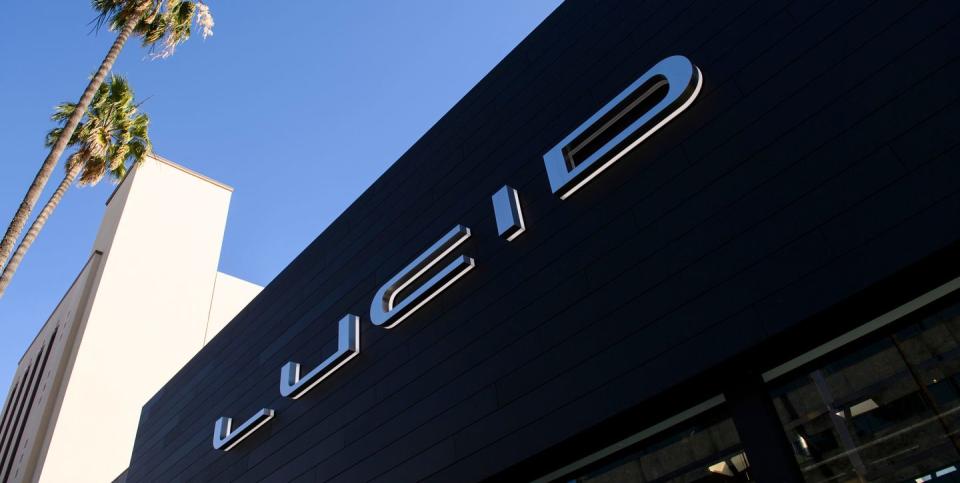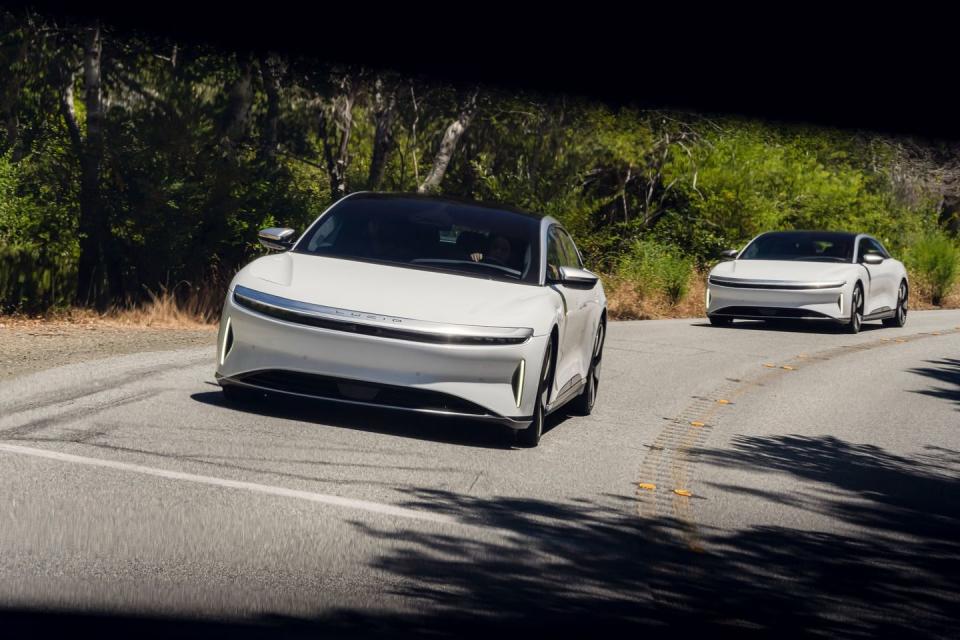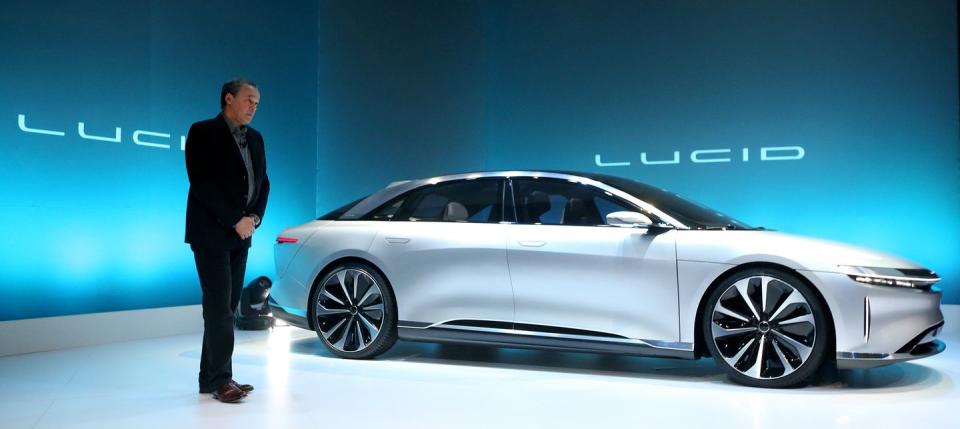Lucid Motors Sues Texas over Dealership Rights

Lucid Motors is fighting back against Direct-Sales Prohibition laws state-by-state, most recently in a federal lawsuit filed in Texas.
Due to Texas state legislation, the California-based EV company is unable to open its own dealership or sell new models directly to customers, a rule that Lucid believes is unconstitutional.
Tesla has faced similar legal scrutiny in its quest for independent sales and service networks, eventually selling to customers through legal loopholes in the state of Michigan, but Lucid's suit is set to question the legality of the rules as a whole.
Lucid Motors set out to be a disruptor from its inception, but the company's reality hasn't exactly aligned with its vision. Production woes and high prices have been balanced by lap records and market-leading EV range, leaving the company in a culturally well-known but financially uncertain position. Getting cars to customers has proven to be the company's biggest challenge, but production problems aren't entirely to blame. Due to Lucid's unique in-house manufacturing, sales, and service network, some states have taken issue with its desire to sell directly to customers and want to force Lucid to sell through established dealer networks.
Lucid has fought back against these regulations, however, with its most recent filing last week in federal court in Texas. Filed against Monique Johnston, Daniel Avita, and Corrie Thompson—all Texas Department of Motor Vehicles officials—Lucid claims the state's refusal to allow the company to obtain a dealership license is anti-competitive and hurts consumer choice in the state of Texas. Additionally, Lucid claims Texas' prohibitive legislation actually encourages out-of-state transactions, which will funnel revenue away from the state and lead customers to be uncovered by in-state consumer protections.

For context, Texas laws protect traditional dealership networks by requiring automotive manufacturers to sell through these networks, but this also means manufacturers without independent dealers are prohibited from operating their own dealerships. The law goes as far as to say Lucid can legally rent or lease its cars to Texans in-state, sell pre-owned Lucids in-state, and even sell brand new models to Texans buying out-of-state, but it cannot sell a new Lucid or open its own dealership in Texas.
"This prohibition is pure economic protectionism for the benefit of Texas’ existing auto dealers," Lucid lawyers wrote in a pointed court briefing. "It puts their profits ahead of the interests of Texas consumers."

Lucid maintains the state of Texas has no legitimate reason for blocking its citizens from buying Lucids directly, even calling Texas' laws unconstitutional. And Lucid may have a point, given the outcome of a similar suit between Tesla and the state of Michigan.
After four years of litigation, Tesla and Michigan settled a similar case in 2020, ultimately allowing any Michigan resident to lawfully buy a Tesla and have it serviced in Michigan. The caveat, in this case, is that Tesla does not have a dealer license in Michigan, meaning it sells cars to consumers through legal loopholes like using out-of-state registrations. Meanwhile, at Tesla's home base in Texas, the company faces the same dealer challenges as Lucid.
Lucid's case against Texas could set the precedent for independent dealerships in the future. Citing independent dealer-supportive Federal Trade Commission language, Lucid thinks it has a strong case, one that could lead to diminished protections for the traditional dealership network. For now, manufacturers will have to wait for the outcome of what's set to be a lengthy legal battle, as manufacturers and dealership networks grapple with limited supplies and increasing demand.

 Yahoo Autos
Yahoo Autos 